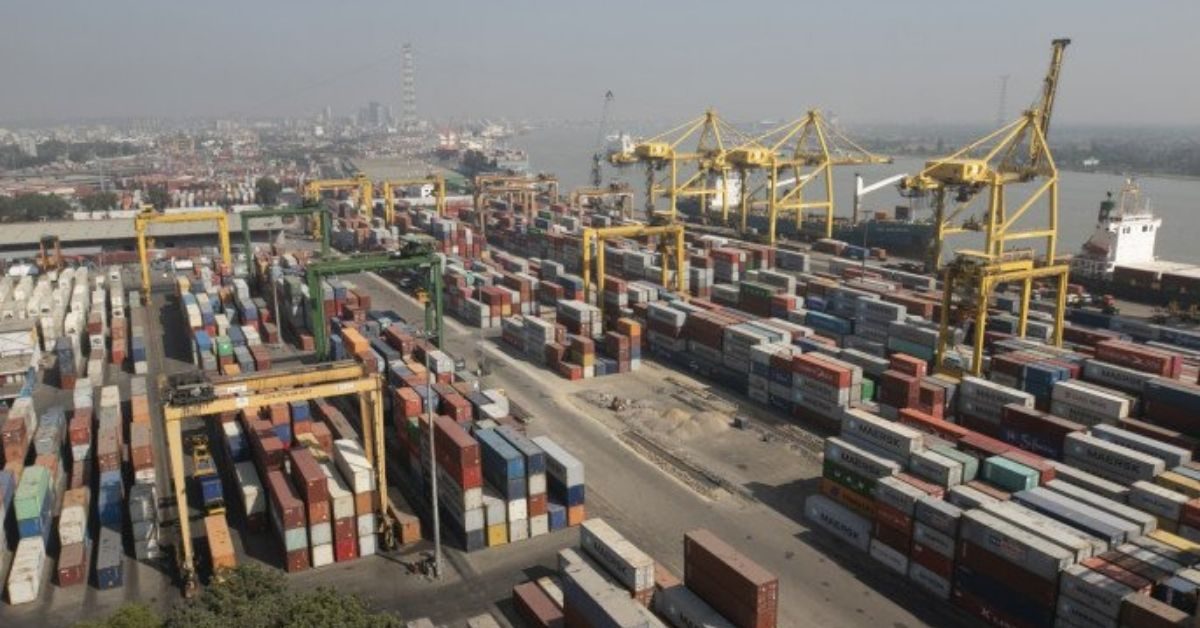Businesspeople are frustrated with a section of government officials who harass them when they try to obtain trade licences, and cause delays in releasing goods from ports and renewal of trade documents.
While large business groups have been surviving largely due to their financial capacities, smaller companies are failing to perform, business representatives said.
Syed Nasim Manzur, president of the Leathergoods and Footwear Manufacturers and Exporters Association of Bangladesh, said when he went to the Chattogram port back in the 1990s for the release of machineries, the officials concerned demanded a non-existent “No-objection certificate”.
Over the years, Bangladesh has progressed a bit in developing a conducive business environment, but a lot needs to be improved, he said.
Manzur was addressing a group of businessmen at “Launching Web Portal on setting up factories, licensing, certification and registration” programme, jointly organised by Centre for Policy Dialogue and GIZ at The Westin Dhaka.
“In many instances, government officials demand a lot of unnecessary and redundant documents, such as memorandum of articles of association of the company.”
He added that obtaining customs and bond licences by a new investor is the biggest headache.
Manzur further mentioned that his Taiwanese investor in Vietnam needs to fulfil eight requirements in five weeks and spend $2,940 to start a new venture.
He also demanded that trade licences stay valid three or five years instead of one so that hassles and cost of renewal are reduced. The frequent renewal of licences has created an opportunity for rent-seeking, he said.
Bangladesh will be able to export $3.0 billion worth of leather and leather goods in the next three years and $5.0 billion in the next five. Last year, the amount was $1.50 billion, said Manzur, also the managing director of Apex Footwear Ltd.
Khondaker Golam Moazzem, research director of the Centre for Policy Dialogue, moderated the discussion, while Ferdous Ara Begum, chief executive officer of the Business Initiative Leading Development, presented the keynote paper.
Faruque Hassan, president of the Bangladesh Garment Manufacturers and Exporters Association, said the apparel suppliers are facing difficulties to deliver the work orders to the international clothing retailers and brands on time due to load shedding of up to 10 hours.
“The situation has turned so dire that factories are facing over 10 hours of load shedding nowadays. The manufacturers have to run units on diesel owing to low pressure of gas and power.”
Gas pressure has also been so low that factories are unable to run on full capacity, he said.
As a result, the consumption of diesel has increased, Hassan said, adding that export and import processes need to be simplified.
Abdullah Al Mamun, vice-president of Bangladesh Textile Mills Association, said one needs to see how much money is required to be paid only to obtain different certifications and trade licences in order to run a business.
Syed Moazzam Hossain, a director of the Federation of Bangladesh Chambers of Commerce and Industry, said Bangladeshis have to do business in the country in the face of so many odds.
“It would be impossible for businesses to thrive in Bangladesh had the businesses not been resilient.”
Businesses are not getting the required gas connections. On top of this, interest on bank loans for setting up factories has been increasing, he added.
Hossain said he was trying to obtain a licence from the National Board of Revenue but some low-ranking officers sought bribe from him, even though the top boss of the department was his friend.
Similarly, Mohammad Hatem, executive president of Bangladesh Knitwear Manufacturers and Exporters Association, said the ghost of the 90s were haunting the business sector, especially with the obtaining and submission of unnecessary documents.
For instance, Hatem had to submit a certificate to the Bangladesh Energy Regulatory Commission to run a 500 KV generator. However, no certificate is required to run a generator below one megawatt. The NBR has been harassing businesses to collect revenue to achieve the target, he said. Also, he said, the Bangladesh National Building Code was made following foreign codes, which are not applicable for the country.








